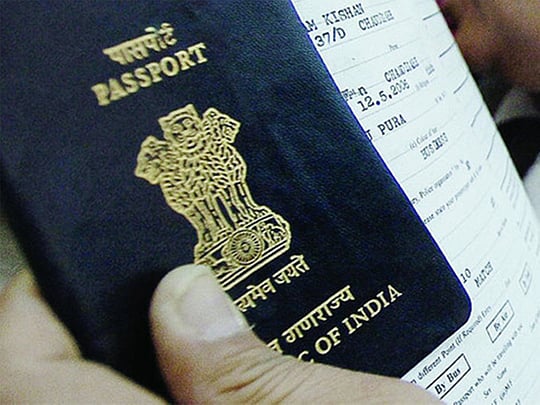Dubai: As the Indian government’s tax reforms on property sales continue to affect Non-Resident Indians (NRIs), concerns about the disparity in tax treatment are growing and expats have been urged to appeal against it.
Following the Indian government's decision to revoke the indexation benefit, which adjusted the cost of property for inflation, NRIs are now facing higher taxes on capital gains from property sales, as first reported by Gulf News last week.
This issue has sparked a call for action from the expatriate community to demand amendment to the taxation of capital gains on real estate property introduced in the Finance Bill, 2024, that left NRIs and Overseas Citizens of India (OCIs) in a disadvantaged position.
UAE resident Sreejith Kuniyil, a chartered accountant, who has taken the initiative to highlight the voices of NRIs and is providing legal support to those affected, said: "Since NRIs are at a disadvantage compared to residents when India revoked the indexation benefit, we need to bring this to the attention of the Indian government at the earliest before the upcoming budget on Saturday.”
What has changed
Indexation is beneficial for taxpayers because it adjusts the purchase price of an asset for inflation, which in turn reduces the taxable capital gains when the asset is sold. The removal of indexation means that NRIs must pay a flat 12.5% tax rate on capital gains while selling immovable properties, without adjusting for inflation. However, Indian residents have the option to choose between a 20% tax rate with indexation, or a 12.5% rate without it, whichever gives them the option to pay the lower tax amount.
This shift has prompted legal action, with Kuniyil helping an NRI petitioner in Kuwait file a writ petition against the Union of India in Kerala High Court, seeking equality in tax treatment for NRIs.
While the hearing on the petition is ongoing, Kuniyil said the NRI and OCI communities across the world can request the government to address the issue in the upcoming budget.
“I firmly believe it was an oversight when the amendment was drafted. Instead of residents, the government could have used the term Indian citizens. We need to get that rectified to ensure the same rights are accorded to NRIs and OCIs as well,” he said.
He urged Indian expatriates and community associations to send letters to the Indian Minister of Finance, requesting that NRIs and OCIs be granted the same tax relief options as residents.
Letter template circulated
A formal letter template has been circulated to community leaders, urging them to write to the Finance Minister before the Indian budget is presented on February 1. Both individual expats and community associations have been encouraged to send emails to the minister.
Drafted with the subject “Request for Parity in Tax Treatment of NRIs and OCIs under New Capital Gains Taxation Rules for Real Estate Property,” these letters highlight the need for tax parity and are expected to gain further traction ahead of the Indian government's February budget session.
“Considering the time constraints, we are urging people, especially community associations to draft the letter in their letterhead and email the scanned copy of the signed letter to appointment.fm@gov.in and fmo@nic.in with a copy to rsecy@nic.in. We request them to send it to info@pravasitax.com also so that it can be included as an affidavit in the writ petition before the Kerala High Court as well,” added Kuniyil.
Sign up for the Daily Briefing
Get the latest news and updates straight to your inbox
Network Links
GN StoreDownload our app
© Al Nisr Publishing LLC 2026. All rights reserved.
